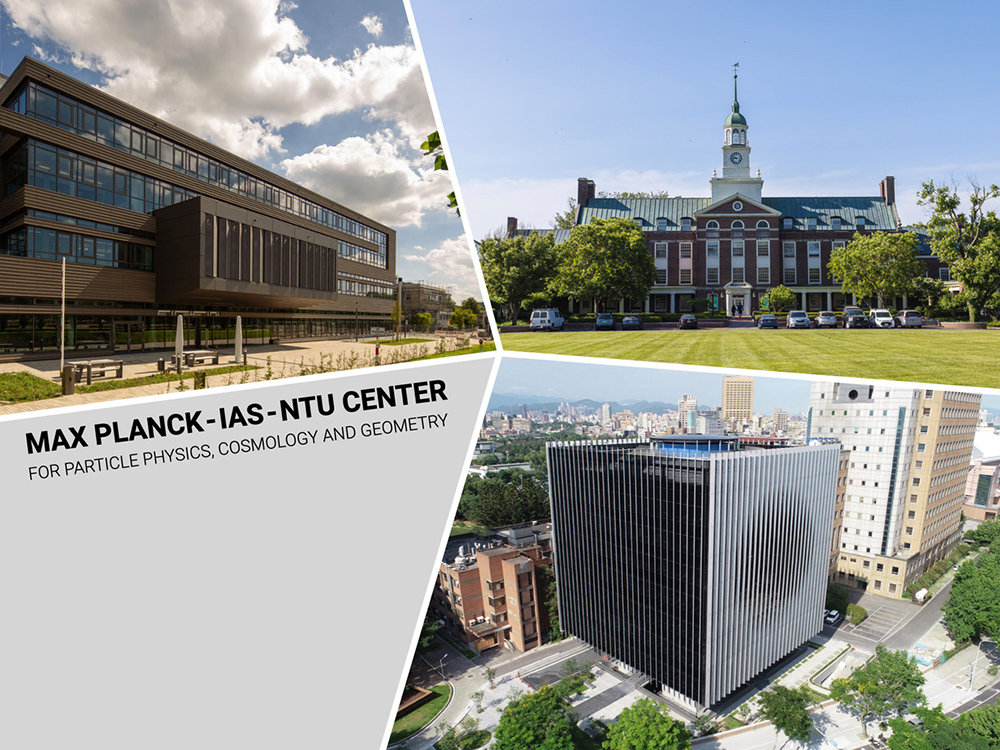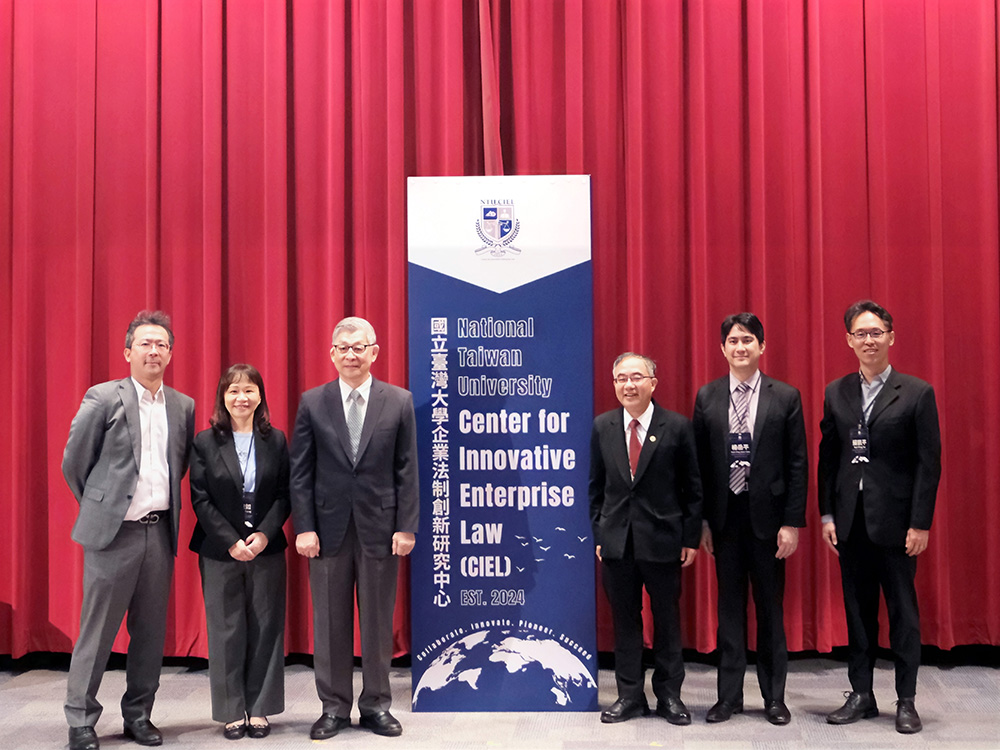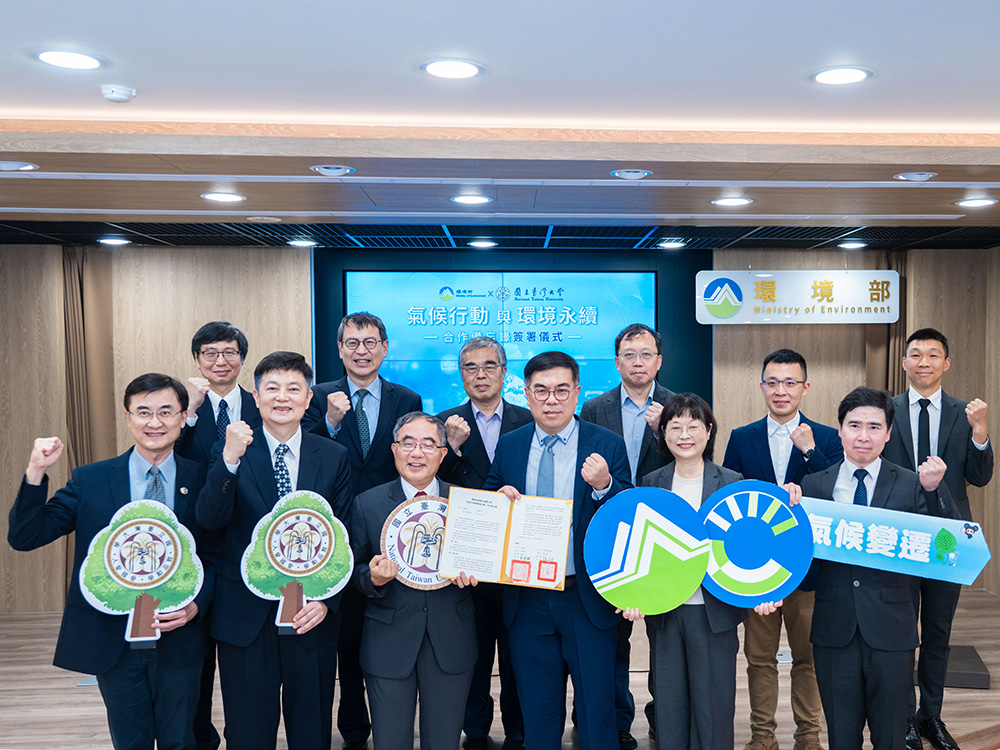
A new milestone for science at NTU: The inauguration of the Max Planck-IAS-NTU Center
瀏覽器版本過舊,或未開啟 javascript
請更新瀏覽器或啟用 javascript
Spotlights
Dr. Harry Shum (right) and NTU Executive Vice President Ming-Syan Chen (left).
Group photo taken after the speech.
Executive Vice President Chen (left) and Dr. Shum (right).
The auditorium is filled with audience.
Dr. Harry Shum (沈向洋), Executive Vice President of Microsoft’s Artificial Intelligence and Research Group, was invited by NTU’s Executive Vice President Ming-Syan Chen (陳銘憲) to share his insights about Microsoft’s business strategy and AI development, as well as his views on Taiwan’s strengths and potentials on October 31. Shum graduated from Carnegie Mellon University and joined Microsoft Research in 1996. He is currently the highest-ranking Chinese employee at Microsoft and oversees Microsoft’s overall AI strategy and frontier research. Shum is known for his contributions in computer visuals and graphics, and he was named ACM Fellow, IEEE Fellow, Foreign Associate of the US National Academy of Engineering, and International Fellow of the Royal Academy of Engineering in the UK.
Chen initiated the talk by quoting from Mary Meeker’s report that ABC (AI, Big data, Cloud) would become the three major economic drivers of the 21st century. Chen congratulated Microsoft for outperforming its competitors and landing a US$10 billion cloud-computing contract with the Pentagon. Shum replied that Microsoft has successfully transformed from a software company into an AI and cloud service provider. In terms of computer visuals, Microsoft not only launched HoloLens and Resnet but also ensured that its products are intuitive tools for all customers to use. He mentioned that a good product should be innovative and applicable at the same time. As cloud development matures, massive amounts of data will migrate to the clouds and the future of technology will gradually shift to the Internet of Things (IoT) and edge computing.
Shum also mentioned Xiaoice’s ability to make conversations and host shows to highlight Microsoft’s work on conversational AI. Though AI can achieve human-level performance in conversation, speech, and visuals, people still need time to embrace these new innovations. It therefore remains important to promote explainable AI so people can regard it as an aid and not a threat. Shum believes that quantum computing will help unleash future AI potential. He also reiterated Microsoft's commitment to green computing, such as improving its data centers’ power usage effectiveness (PUE) and using renewable energy.
Shum concluded his talk by offering students some advice. Taiwan’s advantage in AI development lies in its talents, robust hardware industry, and its promotion of government open data. Shum believes that a “good student” should have good math skills, good programming skills, and a good attitude. Deep learning offers a massive number of pre-trained models, closing the gap between different fields of studies and AI – consequently, students should seize the chance to develop their expertise and careers. Finally, Vice President of Microsoft’s AI Research and Development Center Yu-Ting Kuo (郭昱廷) gave a summary of Microsoft’s research in Taiwan and expressed the company’s desire to enhance its collaboration with NTU.
This article is also featured in No. 75 of NTU Highlights (December, 2019).

A new milestone for science at NTU: The inauguration of the Max Planck-IAS-NTU Center

A Distinguished Global Research Center Established at NTU under Trilateral Cooperation

Collaborative study between NTU and Japan uncovers the origin of Adzuki Beans and agriculture in Japan

NTU Launches Center for Innovation in Enterprise Law—with Forum Highlighting Trump’s Policy and Legal Shifts Amid Geopolitical Tensions

NTU and Ministry of Environment Sign MOU to Advance Net-Zero Transition and Environmental Resilience
Current Spotlights